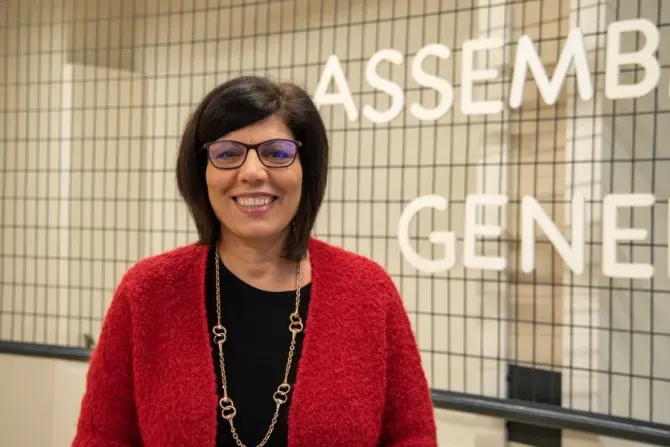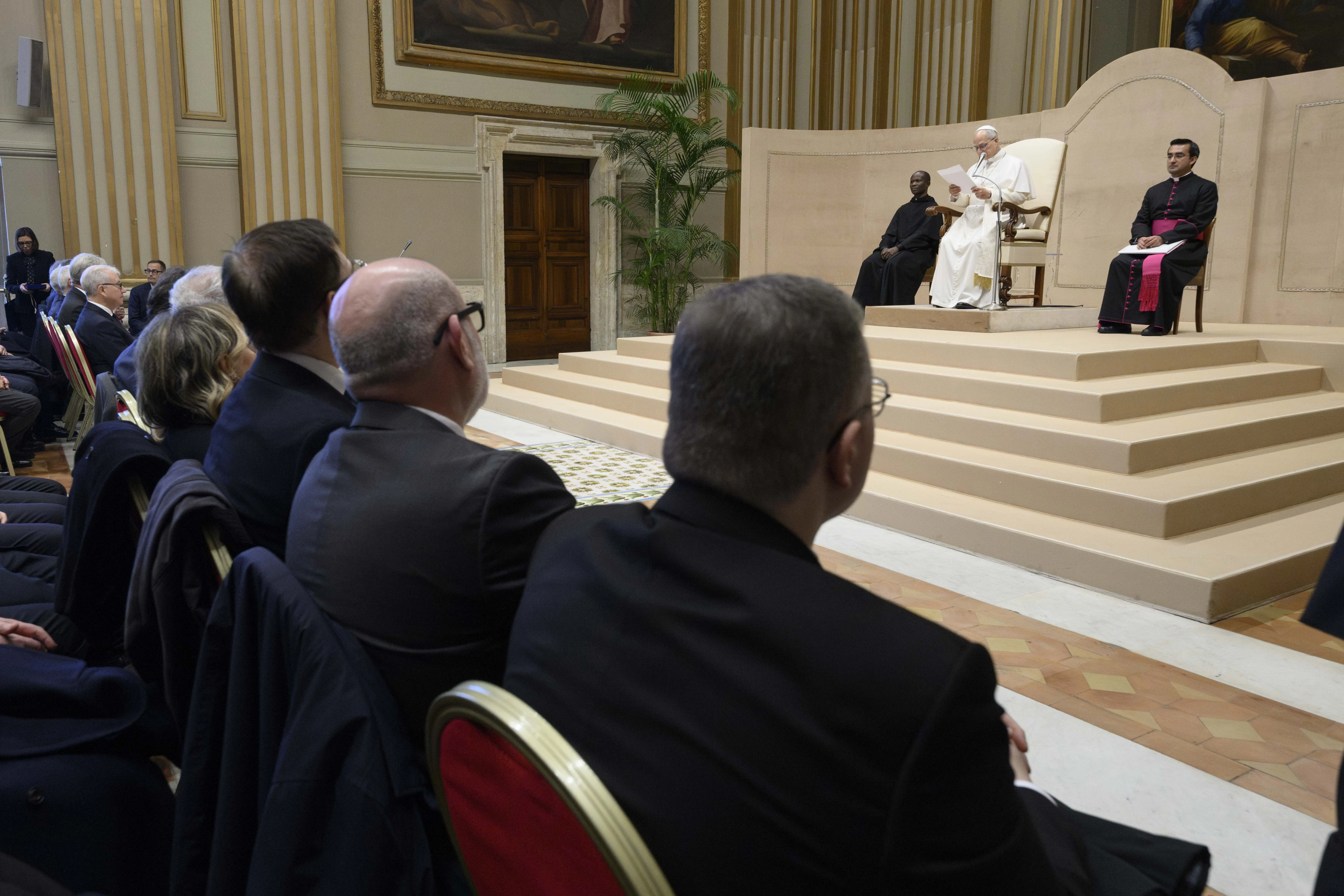In addition to the Emmanuel Community-affiliated Rabourdins, Pope Francis also added other members associated with ecclesial movements.
Father Andrea D’Auria directs the international center of the lay movement Communion and Liberation and is a member of the movement’s associated Priestly Fraternity of St. Charles Borromeo.
Founded in Italy and with about 60,000 enrolled members throughout the world, Communion and Liberation recently came into conflict with the Dicastery for Laity, Family, and Life over its plan for leadership succession, with prefect Cardinal Kevin Farrell eventually intervening to appoint its president in 2022.
Margaret Karram, president of the Work of Mary (Focolare Movement), a participant in the recent Synod on Synodality assembly at the Vatican, was also added as a new member to the dicastery, as was Father Luis Felipe Navarro Marfá, the rector of the Opus Dei-run University of the Sacred Heart in Rome.
The Dicastery for Laity, Family, and Life oversees most Catholic movements and maintains the International Associations of the Faithful Directory.
Three laywomen academics are also among the new members: Ana María Celis Brunet, an expert in abuse prevention from Chile; Maria Luisa Di Pietro, who directs the Center for Research and Studies on Procreative Health at University of the Sacred Heart; and Carmen Peña Garcia, a Spanish professor of marriage law.
In total, eight of the Vatican office’s 28 members are now women. In 2018, Pope Francis emphasized that the Dicastery for Laity, Family, and Life should promote a deeper reflection of the role of women in the Church and society.
The lone prelate added to the dicastery was Archbishop Josep Àngel Saiz Meneses of Seville, Spain. Eleven of the dicastery’s members now belong to the episcopacy, including Cardinal Victor Manuel Fernández, prefect of the Vatican’s Dicastery for the Doctrine of the Faith, and the American cardinals Robert McElroy (San Diego) and Wilton Gregory (Washington, D.C.).
The Dicastery of Laity, Family, and Life was created in 2016 when Pope Francis combined the former pontifical councils for the laity and the family. According to its statutes, the dicastery has the responsibility “for the promotion of life and the apostolate of the lay faithful, for the pastoral care of the young, family and its mission, following God’s plan and for the protection and support of human life.”








